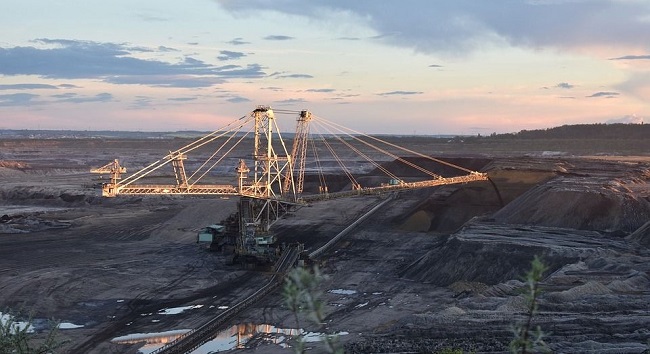The Federal Government in Germany has announced plans to phase out coal by 2038.

The Commission on Growth, Employment and Structural Change released a 20-year report which has agreed to cancel out coal by 2038.
With only one vote against, the commission agreed on a total of €40 billion in aid for the states affected by the coalition exit. The Federal Government will now turn the commission report into a reliable energy concept.
Olaf ScholzIf, Federal Finance Minister, said: “If we do not lose sight of the common goal, we can develop Germany into an exemplary state of energy policy.”
In the years 2023, 2026 and 2029, the Commission will undertake a review by an independent panel of experts.
In response to this review, the power plant capacity will be reduced to 17 gigawatts of brown coal and hard coal in 2030, more than halving it. Depending on the report, the withdrawal of coal could take place, according to the recommendation of the commission, by 2035.
Environment watchdog, Greenpeace, has called for this target to be brought forward to 2030 to ensure that carbon emissions are reduced sooner.
It was reported that, in 2018, the production of coal accounted for 38 per cent of Germany’s energy generation. This move away from fossil fuel generation will put Germany back on track to meet the targets set at the Paris Agreement.
This news follows a report that found that the immediate phase-out of fossil fuels is crucial to meet important climate targets.
The report found that if carbon intensive technologies were replaced by carbon-free alternatives, carbon emissions would steadily decline, dropping to near zero in 40 years. This would result in a 64 per cent chance of limiting global warming to 1.5 degrees Celsius.
In a reaction, physicist Hans Joachim Schellnhuber, a member of the Commission and Director Emeritus of the Potsdam Institute for Climate Impact Research, said: “Germany is finding its way back to the climate protection path: the beginning of an orderly phase-out of coal-fired power generation has been made.
“This is an important step on the road to the post-fossil age – a step that also opens up new perspectives for the affected regions through innovation-driven structural change. The fact that the consensus was difficult to achieve, however, should not be concealed. Efficiency in the implementation and best possible use of taxpayers’ money should certainly also be the focus of the legislative processes that are now to follow.”
Economist Ottmar Edenhofer, Director of the Potsdam Institute for Climate Impact Research and of the Mercator Research Centre on Global Commons and Climate Change, submitted: “It is necessary to take a second step on the road to stabilising our climate, now that the Coal Commission has taken an important first step. It is great that such a broad body, from industry to nature conservationists, has been able to agree to abandon coal. But it is only the necessary prerequisite, not yet sufficient, for substantially reducing our greenhouse gas emissions.
“However, some conservationists and quite a few business representatives share a tendency towards an unfortunately expensive planned economy. That is why we now need effective CO2 pricing in order to use market mechanisms to really secure the coal phase-out. A minimum price is conceivable in European emissions trading or in a pioneer coalition of Germany, France and the Netherlands. Smart CO2 pricing would also generate revenues with which the state can create more justice for all, instead of just making billions available for special interests.”
On his part, Earth system scientist Johan Rockström, Director of the Potsdam Institute for Climate Impact Research, stressed: “The whole world is watching how Germany – a nation based on industry and engineering, the fourth largest economy on our planet – is taking the historic decision of phasing out coal. This could cascade globally, locking in the fastest energy transition in history.
“This can help end the age of fingerpointing, the age of too many governments saying: why should we act, if others don’t? Germany is acting, even if the commission’s decision is not flawless. Yet it is a key contribution to limit the the increasing risks of for instance extreme weather events accross the world. To avoid crucial elements of the Earth system to tip, such as the huge ice sheets, we need social tipping points. Germany just passed one of these.”
